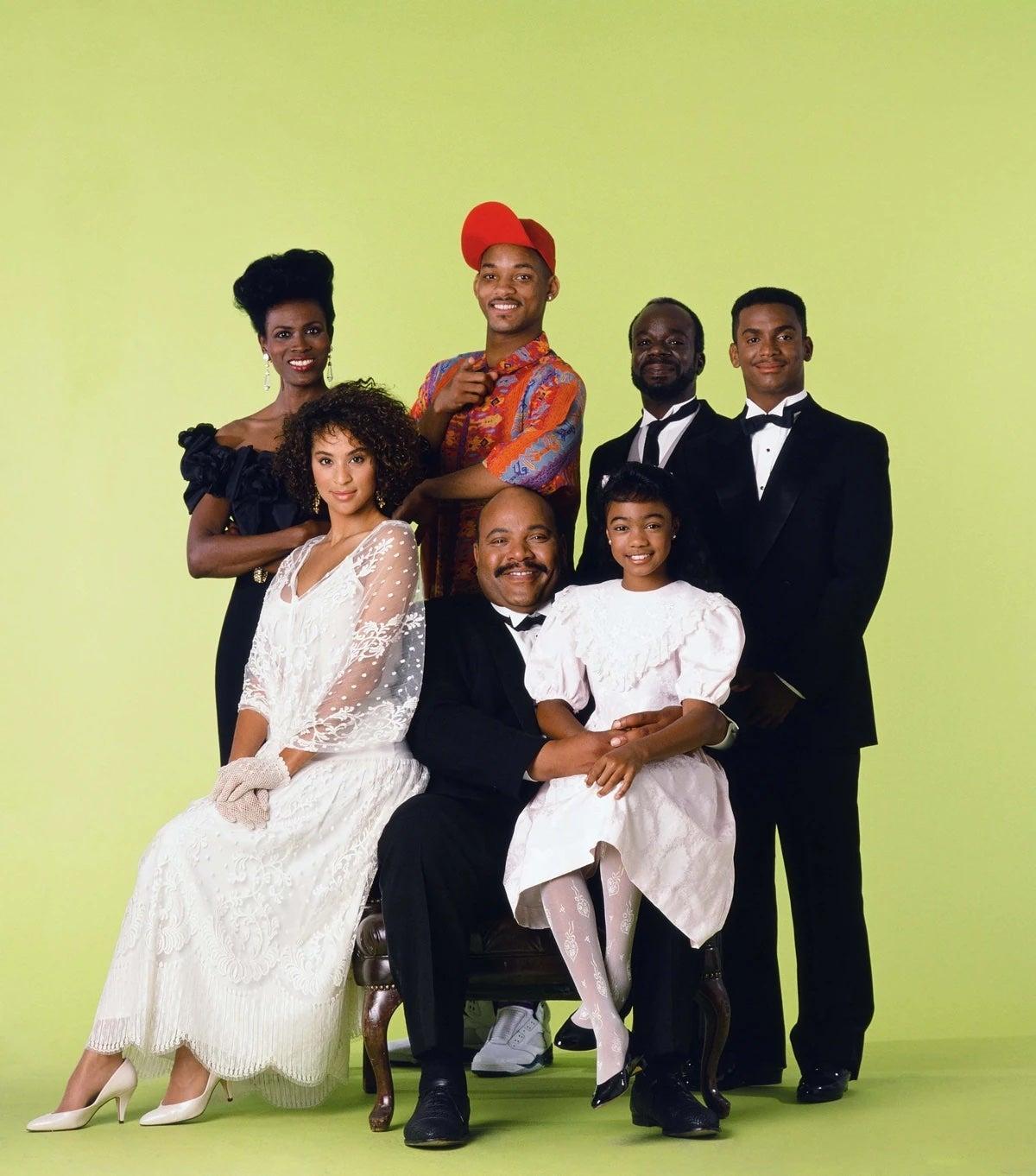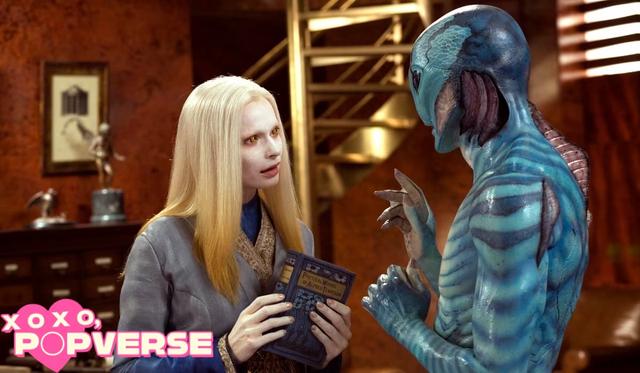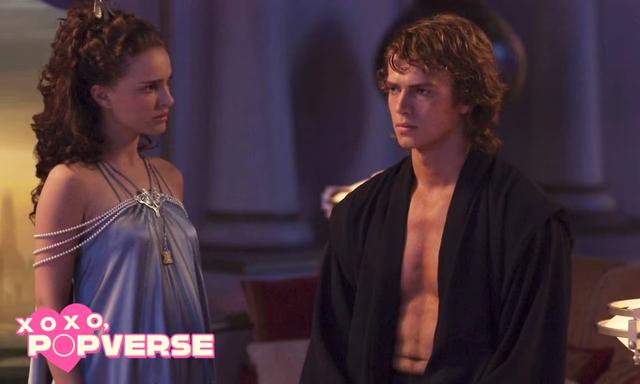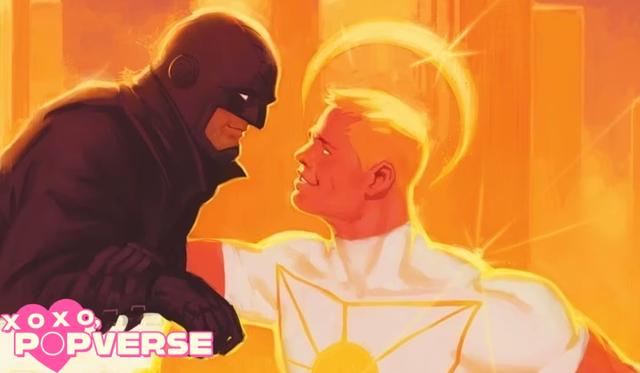If you click on a link and make a purchase we may receive a small commission. Read our editorial policy.
Chris Palmer's The Fresh Prince Project relays the history and legacy of the iconic sitcom
In an interview with Popverse, journalist and author Chris Palmer tells the story of how Will Smith and The Fresh Prince of Bel Air became the princes of Hollywood, unpacking the history and legacy of the iconic Black sitcom.

On September 10, 1990, NBC aired the pilot episode of a sitcom based around the stage persona of a rapper. It could easily have been a disaster.

The show's 21-year-old star had never acted before and was beginning to fade in popularity as a musician. Showrunners Andy and Susan Borowitz had run two previous shows between them, both of which flamed out in a single season. The show's bouncy, colorful, hip-hop fueled tone was unlike anything else on television, and still somehow felt old fashioned in a time when Public Enemy, Ice Cube, and 2 Live Crew were topping the charts.
It's hard to argue that the gamble didn't pay off, however: The Fresh Prince of Bel Air ran for 148 episodes over six seasons, launching Will Smith into megastardom, and is regularly cited as one of the greatest sitcoms of all time.
In his new book The Fresh Prince Project: How the Fresh Prince of Bel Air Remixed America, writer Chris Palmer digs into the history and enduring popularity of the sitcom and the creators who crafted it. In an interview with Popverse, Palmer talks about the show's balance of comedy and heavy emotional themes, his process for tackling such an iconic corner of American sitcom history, and how the show's legacy is defined by more than any behind-the-scenes drama.
Note: This interview has been edited for length and clarity.
Popverse: What made you interested in writing about The Fresh Prince of Bel Air? Is that something that's deeply tied to your background, or is there something else that drew you to it?
Chris Palmer: It was a couple of things. First off, I'm old enough that I watched the show when I was very young, and it was one of the first shows that had this hip-hop, cool vibe that I really loved because that wasn't really out there at the time on network prime time television.
And I was a fan of Will Smith. That was back in the "Parents Just Don't Understand" era [the hit by DJ Jazzy Jeff and The Fresh Prince that earned Smith the first ever Grammy Award for Best Rap Performance in 1989]. I'm pretty nostalgic for the 80s and 90s and things like that, whether it's TV, film, books, fashion, music — and so I read a lot on those subjects. I was like, 'Yo, I want to read a book on The Fresh Prince.' I searched for one and found that one did not exist, so I wrote it.
What's your memory of the show at the time it premiered? How do you remember people reacting to it?
As a really fun show — it's a broad comedy, it had a lot of silliness. Back then they could do stuff like… there were a lot of fat jokes, and bald jokes, the kind of stuff they did on TV at the time just to make people laugh, it was very broad. It was cool, it was in your face, it was bouncy. It had all the colors, the pinks, the greens, the fluorescents, everything like that.
That's what the appeal of the show was, because no other shows looked like that. The rap intro, the most famous intro ever… that's my initial memory from being that young. They weave in a lot of cultural trends that are still relevant today, but I didn't necessarily pick up on that stuff back then. There were serious episodes, but it didn't hit or resonate like it does [for me] today. I just wanted to watch it because Will was cool and I liked that character. Very sitcom-esque, because it was a sitcom.
I feel like the legacy of the show now is more tied to the serious episodes that it would do.
Absolutely. Those are the most memorable episodes. Everyone remembers that it was a fun show, but what they remember about it are the serious episodes. The fatherhood episode ["Papa's Got a Brand New Excuse," season 4, episode 24] is clearly the famous one that everyone talks about, everyone knows the fatherhood episode. The fraternity episode ["Blood is Thicker than Mud," season 4, episode 8] where Carlton has to prove that he's Black, or that his definition of Blackness is as good as anyone else's, things like that have really stood the test of time and are really the true legacy of the show. Everyone knows the show was funny, but lots of shows are funny.
Those moments, those heavy moments, that is The Fresh Prince.

What's your favorite episode?
I probably have two favorite episodes. The pilot ["The Fresh Prince Project," season 1, episode 1] when everyone gets introduced, is classic, never gets old. Brilliant writing by Andy and Susan Borowitz. There's an episode where Will bets Carlton that he can't spend a weekend in the hood ["72 Hours," season 1, episode 23], so they go down to Jazz's crib and he proves him wrong. He turns into this kind of hip-hop guy, and it's so weird to see Carlton like that, right? To this day it makes me laugh, it never gets old. Shout out to the late guest star Tiny "Zeus" Lister, who was Deebo in Friday.
Where do you start when writing about an entire series like this? Where did you begin with your research for the book?
When I was doing this book, I said, 'Ok, I'm going to start at the beginning,' [thinking] the beginning is when the show debuted. Then I quickly realized that was nowhere near the beginning, so I had to backtrack.
The path I had to go back on was: how did the show come to be? How did Andy Borowitz become the creator? He was assigned this job by the President of NBC, Brandon Tartikoff. Then you go back even further: Tartikoff got the idea from Quincy Jones, who got the idea from Benny Medina, who met Will Smith at The Arsenio Hall Show. So that's where I began.
But even before that — The Fresh Prince was a hip-hop, vibe-y show that had never been on prime-time network TV. What were the predecessors? So, I started to trace the lineage of Black sitcoms and Black folks on TV. Family Matters came on a little bit before. The Cosby Show preceded that. Diff'rent Strokes. Good Times. The Jeffersons. You go all the way back to the very beginning and you study the lineage. Because really when it comes to Black sitcoms, one sitcom makes it possible that executives will take a chance on the next one, and then the next one, and the next one.
What do you think makes The Fresh Prince of Bel Air distinct from those sitcoms that came before it?
Other than the obvious hip-hop context which was never-before-seen, the thing I love about the show was that they were able to show that Black people are not a monolith. I think people — not so much now, but back then — had this idea that all Black people are the same. If you saw Good Times, it was just about a Black family in the hood. If you saw The Cosby Show, it was about a Black family that was doing very well, but there was nothing to puncture that, there was nothing to oppose that.
But in The Fresh Prince, you have a kid from the hood who's a fish out of water, and you place him not with a white family — that would be pretty tame — you place him with a Black family. That was the twist there: a Black kid with a Black family, and they're still opposing forces showing the different sides and slices of Black America. That had never been done in that way on a single show.

Will Smith is understandably one of the central figures of both your book and the show. How central do you think his persona was to the show's success? Could it have worked with someone else, or did it have to be him?
No, 100% him. The show worked because of Will Smith. Nobody has his charisma. He was handsome, super funny, he could do physical comedy. He had comedic timing, he could react. He could play very deep, thoughtful characters. He had an incredible range of emotion and acting ability. And he was lovable — everyone loved Will Smith. It might have been an ok show with someone else, but it would not have been how we look at it today. He was the show.
The Fresh Prince Project checks in with Will Smith at a point in his career that's before his mega-stardom, in a period where he's a little bit back on his heels as his music is falling somewhat out of fashion. Can you talk a bit about where he was in his career?
At the time that the show starts, he's literally at the bottom. He had become the first rapper to win a Grammy with "Parents Just Don't Understand." He had this sort of bubble gum style, and rap was really changing at the time. It was becoming gangsta rap. It was conscious rap — there was that New York Style rap that was becoming really popular. A lot of different acts were coming out, and he didn't fit any mold that the general public was interested in anymore. He was very pop, very safe, and people had seen that already. That came and went. He thought to himself that his music days as an artist were over. He couldn't sell records, couldn't sell tickets, he couldn't do anything. He had accumulated a lot of debt, and he needed a job.
He couldn't do music because it just wasn't working, so he stumbled into acting. He didn't really want to do it, that was the thing. He was afraid. He had been given auditions before in the past, but never showed up. He didn't have confidence in himself. He was at the bottom when he got The Fresh Prince — he needed to get this job.
It's hard while reading The Fresh Prince Project to not interpret the story in the context of Smith's incident at the Academy Awards last year. How far along were you in the process of writing the book when the ceremony happened, and did it change your perception of him?
The book was completed. It didn't change my perception of him as a performer, he's still the same actor that he had always been. I think the thing that I understood was, someone like Will Smith who is so ubiquitous and so famous — if you were in a CVS and he walked in, people would go crazy and would rush up to him because they think they know him. But you don't know him. He would look at you and you would be a total stranger.
We have this idea because he's been on screen — he's always saving the world, he's fighting aliens, he's doing dramatic roles, he's making us laugh, he's making us cry — we think we know who he is, but we don't. He's a person like everyone else, and you don't know what's inside someone's head.
I don't know him better, but I think I have a better understanding of who he is after working on this book. And he's a human just like everyone else. Sometimes when you're in that spotlight, when you're in that role, you're not allowed to be human. But of course he is.

The Fresh Prince Project goes through events that were happening behind the scenes —clashes between some writers and the producers, and disagreements between Will Smith and the original Aunt Viv, Janet Hubert. When you are thinking about the legacy of a piece of art, how much do you factor in those behind-the-scenes events into your conception of it?
It all weaves in together, it's all part of the same tapestry. The cast members like to say they were like a family. It's not always going to be great — you're going to have disagreements, you're going to have arguments — but you're going to have some of the best moments of your life. You're going to be in an environment where you're going to learn, you're going to be shaped and affected by the people in that family.
This family happens to be a group of actors that worked together on a show for six years. It didn't work out between OG Aunt Viv and Will Smith, which is probably one of the most publicized things behind-the-scenes, but I tried to go even deeper.
When you look at the show itself, it's not defined by that. It's defined by the way the show affected you, what you got out of it. There's always going to be workplace problems, whether it's on a movie set or whether it's on a show, but I don't think that has anything to do with the legacy of the show. The legacy of the show is what you saw on screen, how it impacted you, and how it made you feel.

Is there anything else that came out of your research that you wanted to highlight or draw attention to?
One of my favorite things is in the afterword. Things have wrapped up, the show has ended, the characters and actors have gone their separate ways and are working on different projects. Joseph Marcell, who played Geoffrey Butler, and James Avery, who played Uncle Phil, remained friends until Avery's passing. Joseph would fly from England to the States and they'd stay together. They'd go to the dog park and they had this beautiful relationship. I was really moved by that, how these two guys, these great actors who were totally different people, became such good friends and remained such good friends.
On that note — The Fresh Prince Project balances the historical details and facts with these evocative descriptions of the emotions. Was it difficult to find the right balance between presenting the facts and presenting those subjective passages?
It was interesting, you did have to find a balance. When you're talking about history, people's backstories, the backstory of the show, and the facts around the show, you have to be very straightforward. You're not going to use your prose, you're not going to try to prove how good of a writer you are. You do your research and you just write what it is.
Then you pull out the emotion and the color, to mine some of the deeper emotional paydirt, you have to be a bit more expressive. You want to bring out those relationships, you want to bring out what this element meant to this actor, this person. So then you can be a bit more subjective. I'm trying to bring out how they felt at the time, as best I can.
The Fresh Prince Project is available now from Atria Books.
Popverse celebrates Black creators and characters for Black History Month
Follow Popverse for upcoming event coverage and news
Find out how we conduct our review by reading our review policy
Let Popverse be your tour guide through the wilderness of pop culture
Sign in and let us help you find your new favorite thing.
















Comments
Want to join the discussion? Please activate your account first.
Visit Reedpop ID if you need to resend the confirmation email.